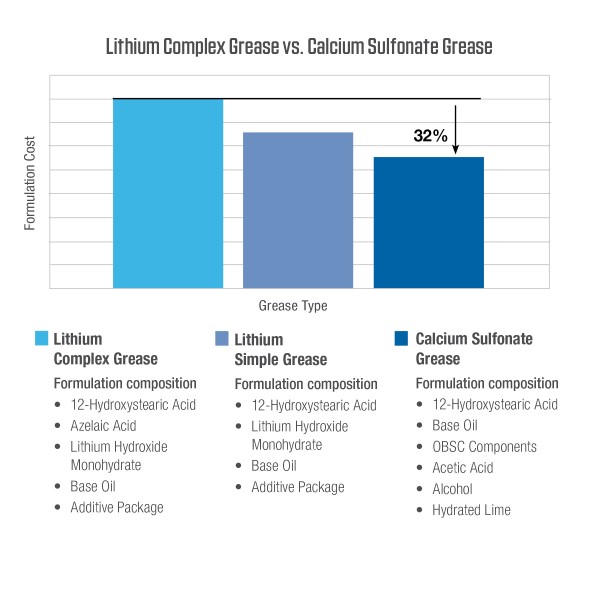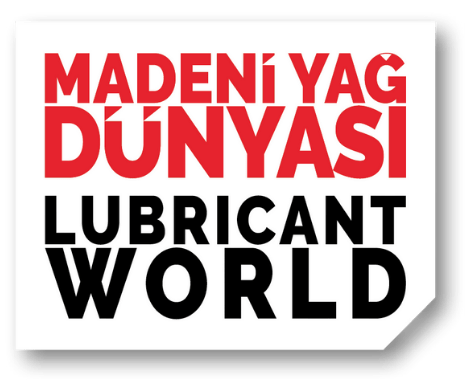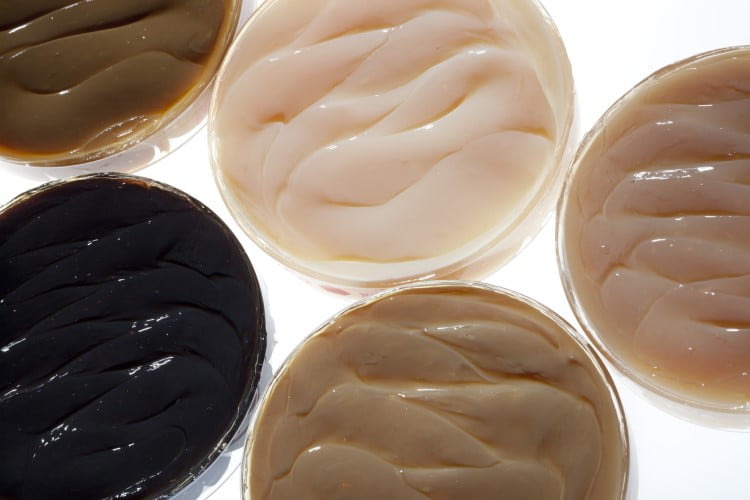As global lithium supplies are increasingly controlled by exponentially growing demand for batteries, industrial grease makers need an alternative.
By Dr Gareth Fish, PhD, Technical Fellow, The Lubrizol Corporation
Lithium soaps have long been the preferred thickener for industrial greases in a wide range of applications around the world. First developed in the 1940s, they have become critical in countless industrial and transportation end-use applications. Lithium soaps are present in around 70% of the global grease market today.
Featuring reliable thickening properties, good compatibility with base oils and additives, and offering suitable performance for long-term application use, it’s easy to see why lithium soaps have become a mainstay. Vehicle electrification has caused lithium demand to skyrocket in recent years, and as more electric vehicles (EVs) are produced, there is no end in sight. Lithium supply is not keeping pace with escalating demand, which is driving new price extremes. Meanwhile, recent regulatory measures have begun to target lithium hydroxide.
The situation points to a need for an alternative to lithium—and Lubrizol has identified overbased calcium sulfonates (OBCS) as candidates with strong potential. In this article, we’ll explore why the grease market needs to step away from lithium soaps, and how it can achieve the kind of reliability industrial applications demand with a new solution.
Lithium: Increasingly Unavailable for Grease Manufacturers
2021 worldwide sales of lubricating greases totaled about 1.186 million metric tons (MT)—and almost 70 wt% of those sold featured some form of lithium as their primary thickening agent, according to the NLGI’s 2021 Annual Production Survey.
Indeed, lithium soaps have long held their status as the preferred thickener for general market lubricating grease products. And there are good reasons for it. Lithium soaps offers a range of benefits, including:
- Reliable thickening properties to form a mechanically stable fiber structure
- Good compatibility with base oils, viscosity modifiers and additives
- Suitable performance for long-term application use
But the market for lithium products is changing rapidly and dramatically. The ongoing proliferation of electric and electrified vehicles has created a massive new market for lithium-powered batteries. Such batteries are expected to dominate global supply of lithium in the coming years. Anyone who has purchased lithium in the past year knows that prices have risen exponentially. Over the long term, it is expected that grease manufacturers will face major supply constriction, with supply favoring battery manufacturers.
Meanwhile, lithium hydroxide added is facing regulatory threats as a grease ingredient. In 2021, the European Chemicals Agency (ECHA) published an opinion that lithium hydroxide was identified as a reproductive hazard with a Category 1A H360FD and a lactation hazard H362. Final confirmation of classification is expected by Q1 2023. Substances identified as being carcinogenic, mutagenic or toxic to reproduction (CMR) with a defined Category 1A/B are eligible for classification as a substance of very high concern (SVHC) by Europe’s Registration, Evaluation, Authorization and Restriction of Chemicals (REACH) body. Such a categorization would significantly affect the global grease industry and in some applications/end uses alternative thickener systems will be needed.
Evaluating the Consequences for Grease Lubricant Marketers
As battery technology continues to proliferate, grease manufacturers will inevitably see a decline in supply of lithium and skyrocketing prices. An alternative will be required sooner rather than later.
The good news is that more economical technologies have emerged as potential replacements for lithium as a thickener in lubricating greases. Candidates include overbased calcium sulfonate (OBCS), aluminum complex, polyurea, and organoclay.
In order to be used on a wide scale, an alternative option must demonstrate the same performance characteristics as lithium soap options under strenuous industrial operational conditions, must be widely and readily available for grease manufacturers, and must be cost-effective. Finally, the alternative must demonstrate its ability to meet OEM specifications as well as end users’ needs.
With the knowledge of the looming constriction of lithium supply, Lubrizol has been working to develop a suitable alternative solution for the needs of grease manufacturers. Throughout rigorous testing protocols, Lubrizol has identified OBCS as a solution with the greatest potential, demonstrating the right characteristics grease manufacturers require for a changing market.
Performance Characteristics of OBCS Formulations
In our pursuit of proving OBCS as a viable thickener for general purpose industrial greases, Lubrizol developed a synthetic overbased 400 TBN calcium sulfonate in 100N diluent oil that suits the differing needs of grease formulators. Our testing results help to validate OBCS as a viable lithium replacement in many industrial grease formulations.
Our semi-synthetic formulation demonstrated the ability to be used to create high-performance, cost-effective greases without supplementary additives. It equips a fully formulated grease to provide good thermal stability and a high dropping point; good mechanical stability; very strong EP/antiwear performance; and excellent rust protection. Synthetic OBCS also offers superior water resistance.
To further validate OBCS performance, Lubrizol also developed a unique processing aid for making high-quality simple and complex sulfonate greases. This aid is a calcium sulfonate precursor designed to have high water spray-off resistance, which lowers grease consumption, along with superior cold flow properties as well as a manufacturing process that makes grease easier to produce.
Throughout development of these OBCS formulations, testing confirmed high levels of performance. Some attributes include:
- Fast processing time. A finished grease can be made quicker under the right processing conditions.
- Manufacturing flexibility. The synthetic OBCS can be used in open kettle or closed kettle formulation applications.
- Consistent processing. Our formulation provided consistent gelling with less batch-to-batch variation.
- Superior tackiness. Greases made with our processing aid have excellent water wash-off and water spray off properties.
- Superior cold flow properties. Our formulation developed superior cold flow properties when compared to other OBCS greases made of the same consistency.
Formulation Advantages
Depending on your specific formulation needs, Lubrizol’s calcium sulfonate products present specific advantages. These include good thermal stability (high dropping points), excellent EP and antiwear properties and suitability for a range of industrial applications including milling, mining, off-highway and more.
Cost Advantages
Most importantly, Lubrizol OBCS formulations enable grease manufacturers to develop reliable finished products more cost-effectively than today’s available lithium supply. In fact, OBCS raw material costs are lower than traditional lithium and much lower than lithium complex greases.
By enabling a range of critical performance attributes (EP, AW, mechanical stability, thermal, water handling and storage stability over time) without the use of additional performance additives, Lubrizol’s OBCS solutions represent a total cost advantage for grease formulators.

Prices may vary. For illustrative purposes only.
As electric vehicle and battery industries continue to drive the price of lithium to new heights, lubricating grease manufacturers will continue to face escalating supply challenges. Prices will increase dramatically, and availability may evaporate altogether for grease makers in favor of battery manufacturers.
OBCS represents a cost-effective solution that delivers the performance grease manufacturers need to develop reliable products that customers around the world depend on for reliable equipment operation. We believe it’s in the best interests of today’s grease manufacturers to investigate this effective alternative to lithium to best support critical industrial applications. To discuss the available options and identify a solution that’s right for your business, reach out to your Lubrizol representative today.
Dr Gareth Fish, a Technical Fellow at the Lubrizol Corporation, Wickliffe, Ohio, holds a PhD in tribology from Imperial College London, and has more than 30 years grease industry experience. He is a multiple award-winning author of more than 70 technical papers, an STLE Fellow and certified lubrication specialist (CLS) an NLGI certified lubricating grease specialist (CLGS).





